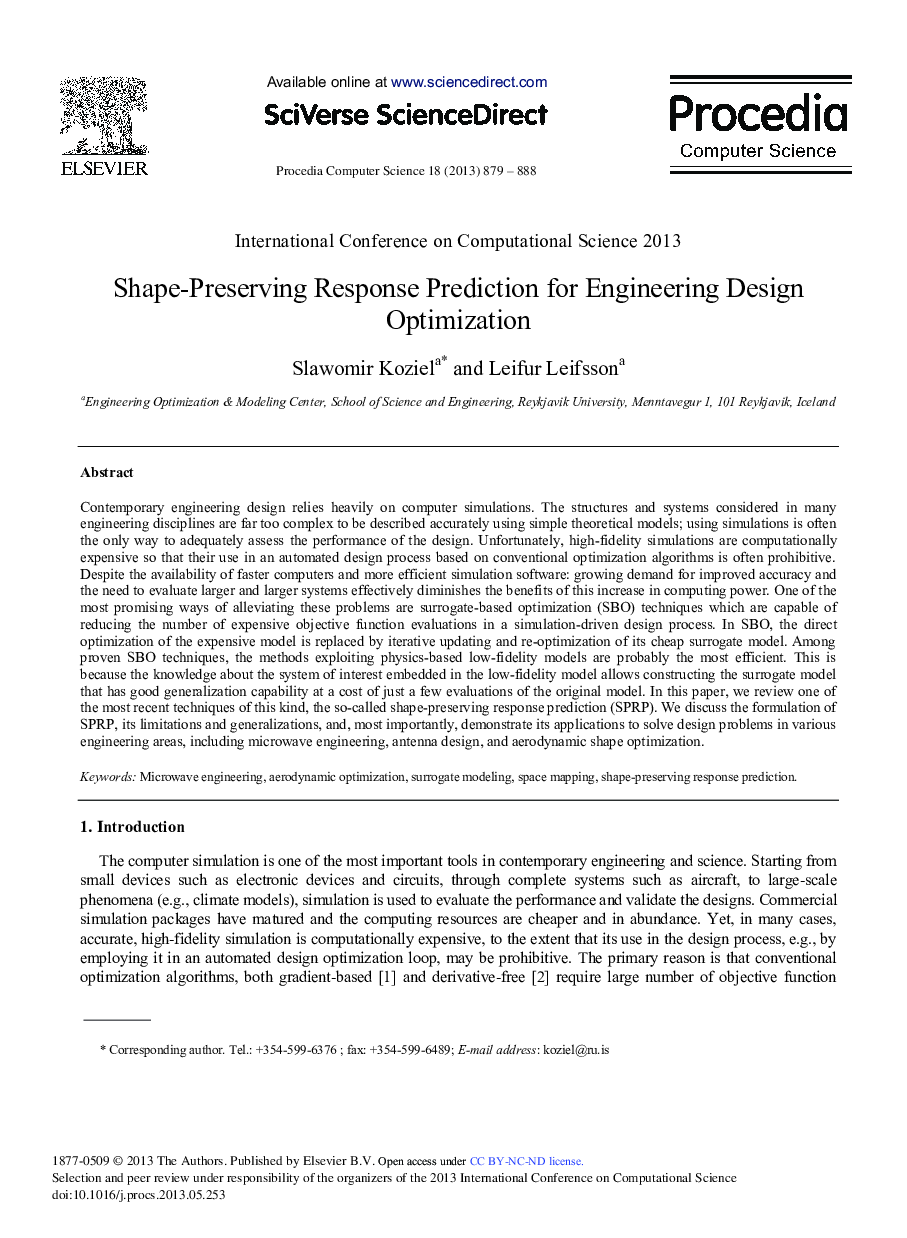| Article ID | Journal | Published Year | Pages | File Type |
|---|---|---|---|---|
| 490563 | Procedia Computer Science | 2013 | 10 Pages |
Contemporary engineering design relies heavily on computer simulations. The structures and systems considered in many engineering disciplines are far too complex to be described accurately using simple theoretical models; using simulations is often the only way to adequately assess the performance of the design. Unfortunately, high-fidelity simulations are computationally expensive so that their use in an automated design process based on conventional optimization algorithms is often prohibitive. Despite the availability of faster computers and more efficient simulation software: growing demand for improved accuracy and the need to evaluate larger and larger systems effectively diminishes the benefits of this increase in computing power. One of the most promising ways of alleviating these problems are surrogate-based optimization (SBO) techniques which are capable of reducing the number of expensive objective function evaluations in a simulation-driven design process. In SBO, the direct optimization of the expensive model is replaced by iterative updating and re-optimization of its cheap surrogate model. Among proven SBO techniques, the methods exploiting physics-based low-fidelity models are probably the most efficient. This is because the knowledge about the system of interest embedded in the low-fidelity model allows constructing the surrogate model that has good generalization capability at a cost of just a few evaluations of the original model. In this paper, we review one of the most recent techniques of this kind, the so-called shape-preserving response prediction (SPRP). We discuss the formulation of SPRP, its limitations and generalizations, and, most importantly, demonstrate its applications to solve design problems in various engineering areas, including microwave engineering, antenna design, and aerodynamic shape optimization.
